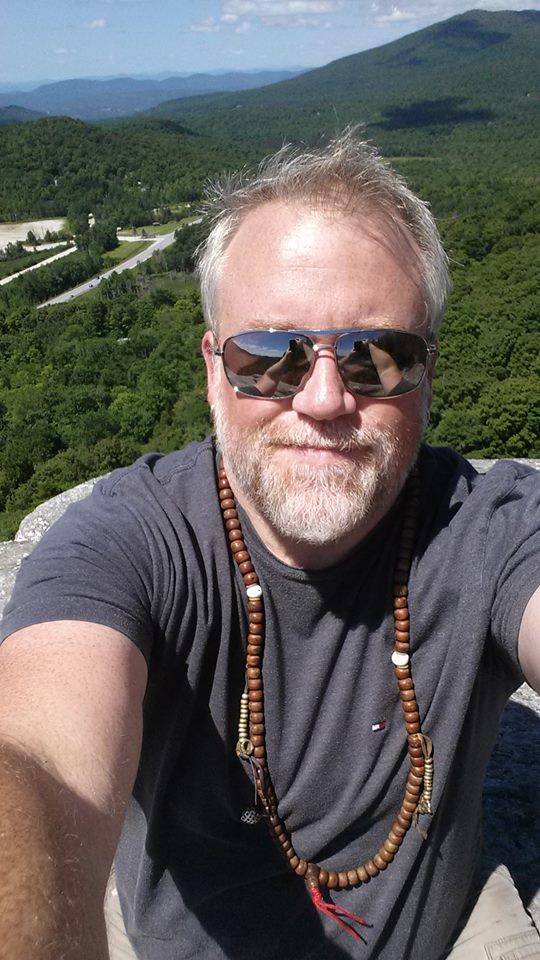Here’s an excerpt from Jason Miller’s Magick Monday Newsletter today:
I have prepared the following points for interested parties.
MIS-APPROPRIATION. I am more concerned with mis-appropriation and misrepresentation than I am with cultural borrowing or eclecticism. Mis-appropriation is when someone mis-represents a culture or practice. This should be everyones concern. It takes many forms in the occult community. Some examples:
- People calling themselves Houngan or Tata or Ngakpa or other official titles when they have none of the specific training or initiations required by people who hold those offices. This is no different than calling yourself MD even though you didn’t go to medical school. It doesn’t matter if “the spirits made you….”, if the culture has specific parameters then you don’t get to be that without fulfilling those.
- Some titles are not official and have no set initiations. Curandero, Bokor, Yogi, etc come to mind as examples. Rather than rushing to call yourself one of these, perhaps the standard should be that people from that culture call you that. If you serve a Haitian community and they call you a Bokor, then no one is going to argue. If you call yourself a Bokor after reading a few books and doing your own thing, thats mis-appropriation even though there is no official status of what makes a Bokor.
- Practices also get misappropriated. Anyone can build a spirit house in a cauldron and put in sticks, herbs, bones, and other items that they feel led to include. It may look just like a Nganga, but its not. That has specific meaning in a specific context.
- Some practices and titles become generalized over time. Mojo, Shaman, Juju, Guru, etc all have made their way into modern english and get used widely out of original context. This is how language works. I tend to avoid such terms out of context, but I also don’t call people out for using them. Then again, I am a white guy in America so I respect that people feel differently.
If you find someone mis-appropriating culture in my courses or groups, please let me know and I will make a decision. As for me, I am very transparent about everything I do and where it comes from. If I do something and you are not sure whether its misappropriation or not, then let me know and I will talk with you.
CULTURAL APPROPRIATION. Once we dismiss the idea of cultural misappropriation and misrepresentation we have the issue of more general appropriation. This ranges from simple cultural contact and mindful synchretism, to wild and careless eclecticism . Like most things in this day and age, people seem to abandon any nuance in favor of extreme views on the topic. I do not.
On one hand you have people arguing that no one from one culture should practice any magical or spiritual (or cosmetic or culinary or… seemingly any ) practices of another culture. Suffice to say I have learned much from other cultures and go out of my way to credit my teachers and sources, so this kind balkanization of the world doesn’t seem feasable or desirable to me. Then again, I’m a white guy from America, so I try to be mindful of the privilege from which I approach the world.
On the other and you have people saying that all cultures borrow from one another, so its all one thing, and they can just take what they want and call things what they want. This is disrespectful at best, and easily heads towards misappropriation. I have seen the harm from this many time when the misappropriated becomes more visible and easily accessible than the authentic. Tantra is a great example of this, as it is in the minds of many people just a euphamism for sex magic.
In addition to this there are spurrious claims that hold no water in my opinion. Tarot being restricted to Romany people, Spirit Animal or Tribe being a terms umique to first nations people are two recent examples. Sometimes spurrious claims are made on behalf of a culture, religion, or practice by people not even in that group. When Wiccans tell people that its wrong to even pray or light a candle to Papa Legba without being initiated, they are ignoring the congregational aspect of Vodou, and are themselves mis-appropriating it while trying to defend it. How’s that for complicated?
All I can do here is share my rules for myself and be transparent. Some people will be happy with this, and some people will think I am all kinds of wrong, but at very least they can be assured that I listen and consider my actions carefully, even if in the end they disagree.
MY RULES
- If this is a living tradition, approach people in the community and culture to learn from.
- If they share something and you wind up mentioning it or teaching it, credit the source.
- If you wind up borrowing it, changing it, customizing it, or doing something loosely inspired by it you need to FIRST: be clear that it is NOT the thing, but your own thing that is loosely inspired by. SECOND, use a different name for your thing, but still credit your inspiration.
- If someone says “This is closed to you” accept that and walk away from that person, but not necessarily that practice (see #5)
- There is no such thing as a unified opinion in a culture. Some houses of Vodou will initiate white folks, some won’t. Some teachers will place a large preliminary in front of a practice, and others will teach it openly. Choose the right teachers and respect who you have been in the room with. Chagdud Tulku once taught on Threkchod in California only to people who had completed years of preliminary practices. That same weekend Lama Wangdor taught the same practice at a carpet shop in New York to anyone who wanted to listen and practice. Both Tibetan, both Nyingma, both roughly the same age – there is no such thing as a monolithic opinion.
MY EXPERIENCE IN ROOTWORK AND TIBETAN BUDDHISM
If I have two areas that I think people might question me on regarding cultural appropriation its probably Rootwork and Tibetan Buddhism. There are certainly others, but these feature prominently in my history.
Rootwork and Hoodoo: I grew up in Jackson NJ, and the town next to me Lakewood NJ had a Conjure shop in the back of an African American clothing store called “The Globe”. It was run by a rootworker named Walter. He not only sold me my first condition oils and powders, but my first copy of the Key of Solomon and the 5th and 6th Books of Moses. I would go in and talk about magic, and he would suggest herbs and practices which I would try out. When I went back in he would ask how it went and I would ask more questions. This was the primary way I learned folk magic in general and Rootwork in particular. Years later I would take catherine yronwodes course on Hoodoo (I was graduate 99) which filled in greatly expanded upon what I already had learned.
There are some younger people online who say that Hoodoo and Rootwork are “closed practices” to white people. There are also African American’s online who run Botanicas andConjure businesses that say the opposite. Again, cultures are diverse and different people hold different opinions.
Tibetan Buddhism and Bon: When I was a teenager I met and befriended the first western Ngakpa John Myrdhin Reynolds. In my mid-twenties I took an interest in Tibetan Buddhism, and have taken teachings and initiations over the years from scored of teachers including Penor Rinpoche, Lopon Tenzin Namdak, Moktsa Rinpoche, Chagdud Tulku, Chimed Rigdzin, Lama Dawa, Lobsang Samten, Lama Wangdor, Namkhai Noru, Ngakpa Jampa, Lama Vajranatha and even lived for a month with Kunzang Dorje (if you are a stickler for formality, please insert Kyabje, Rinpoche, and other honorifics where appropriate). I have seen how it operates both here in America and in Himalayan culture when I lived in Nepal between 1999 and 2000.
I honor the people who have given me their teachings and follow the guidelines I explained above. When and if I teach on these topics I follow the guidelines explained above.
I tend to ignore titles and just refer to myself as a Sorcerer, but I am ordained as a Ngakpa and a Bishop. If you see me wearing ritiual clothing, its because I am serving in my role as Ngakpa or Bishop. I try to avoid titles and uniforms other than when they are absolutely appropriate. In addition to these I have had teachings from Aghoris, Shaivites, Quimbandero’s, Santa Muerte devotees, and Obeah as well as a host of western magical traditions like Thelema and various forms of Witchcraft.
Sign up for the newsletter, sign up for his courses: https://www.strategicsorcery


